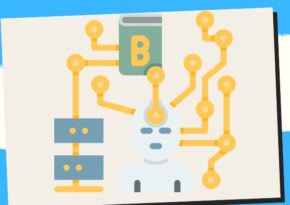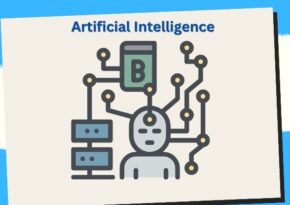
 Unveiling the Invisible Chains: Socioeconomic Bias in AI Applications
Unveiling the Invisible Chains: Socioeconomic Bias in AI Applications 



 Addressing Socioeconomic Bias in AI Applications: Striving for Equity and Inclusion
Addressing Socioeconomic Bias in AI Applications: Striving for Equity and Inclusion
In the age of artificial intelligence (AI), the promise of unbiased and equitable decision-making has never been more attainable. AI applications are revolutionizing industries, from finance to healthcare, offering data-driven insights and automating processes. However, a profound concern lies beneath these groundbreaking technologies: socioeconomic bias. This extensive exploration will delve into the multifaceted issue of socioeconomic bias in AI applications, examining its roots, consequences, and collective efforts to mitigate its impact.
 Unpacking Socioeconomic Bias in AI
Unpacking Socioeconomic Bias in AI
Socioeconomic bias in AI applications refers to the tendency of these systems to favor or discriminate against individuals based on their socioeconomic status. Socioeconomic status is a multifaceted concept encompassing factors such as income, education, occupation, and access to resources. When AI applications inadvertently introduce socioeconomic bias, they can affect various aspects of our lives:
- Employment: AI-driven hiring systems may favor applicants from higher-income backgrounds, creating disparities in employment opportunities.
- Financial Services: Socioeconomic bias can lead to unequal access to loans, credit, and financial services.
- Healthcare: AI algorithms can inadvertently prioritize the healthcare needs of individuals with higher incomes, neglecting those economically disadvantaged.
- Education: Socioeconomic bias in educational AI can impact access to quality educational resources and opportunities.
- Criminal Justice: AI applications may exacerbate inequalities in the criminal justice system by disproportionately targeting or favoring individuals based on their socioeconomic status.

 The Sources of Socioeconomic Bias in AI Applications
The Sources of Socioeconomic Bias in AI Applications
Understanding the origins of socioeconomic bias in AI applications is essential to address this issue effectively:
- Training Data: AI models learn from the vast datasets used for training. If these datasets contain historical biases, such as disparities in income or access to resources, the AI models may perpetuate these biases.
- Data Collection: Data collection methods and sources can introduce bias. Data gathered from specific socioeconomic groups may not be representative of the entire population, leading to skewed results.
- Algorithmic Design: The design of AI algorithms and models may inadvertently introduce socioeconomic bias, as certain features or attributes may be given undue weight in decision-making.
- Human Annotators: Human annotators who review and label data for machine learning may introduce their own biases, consciously or unconsciously.
 Consequences of Socioeconomic Bias in AI Applications
Consequences of Socioeconomic Bias in AI Applications
Socioeconomic bias in AI applications can lead to a range of harmful consequences:
- Reinforcement of Inequity: These biases can perpetuate existing societal disparities, making it harder for individuals from disadvantaged backgrounds to improve their circumstances.
- Discrimination: Socioeconomic bias can lead to discriminatory outcomes, such as denial of employment, credit, or healthcare services to economically disadvantaged individuals.
- Loss of Opportunity: It can limit access to opportunities, hindering upward mobility and socioeconomic advancement.
- Public Trust Erosion: When the public perceives that AI systems unfairly favor certain socioeconomic groups, trust in these systems erodes, leading to skepticism and reluctance to use them.
- Underrepresentation: Socioeconomic bias can lead to the underrepresentation of economically disadvantaged individuals in AI-generated content, perpetuating invisibility and exclusion.
 Mitigating Socioeconomic Bias in AI Applications
Mitigating Socioeconomic Bias in AI Applications
Addressing socioeconomic bias in AI applications is an ongoing and collective endeavor. Strategies to mitigate this bias include:
- Data Preprocessing: Rigorous curation and preprocessing of training data to remove or reduce socioeconomic bias are essential.
- Diverse and Representative Data: Efforts to ensure that training data is diverse and representative of the entire population are crucial.
- Bias Audits: Regular audits to identify and rectify socioeconomic bias in AI systems can help maintain fairness.
- Fairness Metrics: Develop and implement fairness metrics to assess how AI applications perform on various socioeconomic groups and detect potential disparities.
- Transparency and Explainability: Enhance the transparency of AI decision-making processes and explain the outputs generated.
- Ethical Guidelines: Develop and adhere to ethical guidelines and codes of conduct for developing and using AI applications.
- Community Engagement: Seek feedback and insights from communities and individuals who may be affected by AI-generated content to make improvements.
 The Global Perspective
The Global Perspective
Socioeconomic bias in AI applications is a global issue that affects people from diverse backgrounds and regions. To address this bias, international collaboration, shared best practices, and regulatory standards are essential.
Organizations like the United Nations and the World Economic Forum actively work on AI ethics and promote responsible AI use. Their focus includes ensuring that AI respects human rights and promotes equality.
 The Path to a More Inclusive Future
The Path to a More Inclusive Future
As we navigate the complexities of socioeconomic bias in AI applications, the path to fairness may be challenging, but it’s promising. With a combination of ethical development, regulation, and community engagement, we can steer AI applications toward delivering results that respect and include diverse socioeconomic perspectives.
We must remember that AI is a powerful tool that can be harnessed for positive change. The key is ensuring that technology aligns with fairness, equity, and inclusion values.
 The Role We All Play
The Role We All Play
The quest for fairness in AI applications is a shared responsibility. Whether you are an AI developer, a policy maker, a researcher, or a concerned individual, you can contribute to eliminating socioeconomic bias in AI-driven applications.
By actively working towards unbiased AI, supporting regulations that ensure fairness, and raising awareness about the importance of ethical AI, we can collectively create a future where AI applications reflect the diversity and equality we value in our global society. Together, we can pave the way for AI to respect and include all socioeconomic perspectives.
Related Queries
Socioeconomic bias in AI applications
Tackling Socioeconomic Bias in AI
Ethical solutions for fair AI applications
Inclusive innovation and AI bias
Economic disparities and AI bias
Addressing Socioeconomic Bias in AI
The true cost of socioeconomic bias in AI
Strategies for fair AI applications
Equity in socioeconomic AI technology
Empowering communities and AI bias
Save/Share this story with QR CODE
Disclaimer
This article is for informational purposes only and does not constitute endorsement of any specific technologies or methodologies and financial advice or endorsement of any specific products or services.
 Need to get in touch?
Need to get in touch?

We appreciate your reading. 
1.) 

Your DONATION will be used to fund and maintain NEXTGENDAY.com
Subscribers in the Philippines can make donations to mobile number 0917 906 3081, thru GCash.
3.) 
4.) 
AFFILIATE PARTNERS

World Class Nutritional Supplements - Buy Highest Quality Products, Purest Most Healthy Ingredients, Direct to your Door! Up to 90% OFF.
Join LiveGood Today - A company created to satisfy the world's most demanding leaders and entrepreneurs, with the best compensation plan today.











